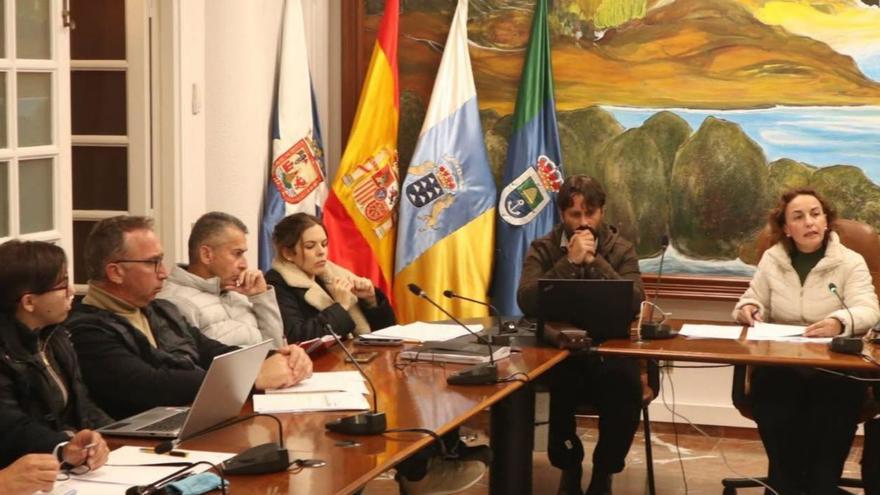
The City of Arico has to implement a financial economic plan because last year, it exceeded the **expenditure limit by 693,642 euros**. This means that they need to achieve savings of 7% through reviewing and rationalising service contracts, reducing the workforce (no new hires, voluntary departures, and leaving vacancies unfilled), updating public fees and prices to reflect the cumulative CPI and the actual cost of services, updating the tax register, and postponing multiannual investments until the financial sustainability of the corporation is ensured.
The municipal government set the computable spending limit at 8,202,587 euros. However, the budget settlement for 2024 showed that it reached 8,896,229 euros, exceeding the limit by 11.28%. A notable highlight is the expenditure of 302,613 euros in aid and subsidies that the City Council granted to institutions and individuals, reflecting a **187.55% increase compared to the previous year**. There’s also attention drawn to the **102.6% rise in real investments**.
The report presented by the local government to the Corporation in the Information Commission points out that in 2023, due to the suspension of tax regulations, there was low budget execution during the first half of the year. The mayor, Olivia Delgado, stated in the document that there was “a significant number of pending bills” from the previous administration, which changed hands in mid-June 2023. This ‘extra-judicial credit recognition’ that the administration used to cover those invoices effectively led to an increase in spending for the 2024 financial year.
### The causes
In her explanation, she stresses that during the previous year, with the tax regulations in effect, there was “an increase in non-financial spending necessary to ensure the ordinary functioning of public services and the execution of essential investments.” Delgado argues in the report that this rise is due to the restoration of normal service levels, the implementation of new investments co-financed with both internal and external resources, and the upward revision of personnel costs.
Another issue facing the City Council of Arico is related to the average payment period, which last year (the first fully managed by the PSOE-PP coalition) was 120.79 days. This year and the next must see that period down to 30 days, according to the financial economic plan that the City of Arico is set to apply.
As of now, this administration does not yet have a municipal budget for the year. Nevertheless, the document presented to the Information Commission outside the agenda claims that it anticipates “a significant increase compared to previous years”, particularly impacting current expenses and investments.
### Goals
With this, the PSOE-PP government aims to restore basic service levels, carry out planned actions to improve services for citizens, and address the maintenance of municipal infrastructure (such as streets, water supply networks, and children’s parks), in addition to meeting needs arising from the current social and economic context.
In the yet-to-be-approved budget, the government led by Olivia Delgado intends to “resolve the contract for Plaza de la Villa de Arico.” In this regard, the financial economic plan indicates that “it is necessary, in line with technical and legal assessments, to compensate the contractor for damages from the work being halted in 2019 and for the project deficiencies that rendered the contract unfeasible.” All of this leads to the conclusion that there will be “a timely recovery of the level of municipal activity.”
This marks the second municipality in the south to announce the implementation of a financial economic plan, with Güímar being the first.
















